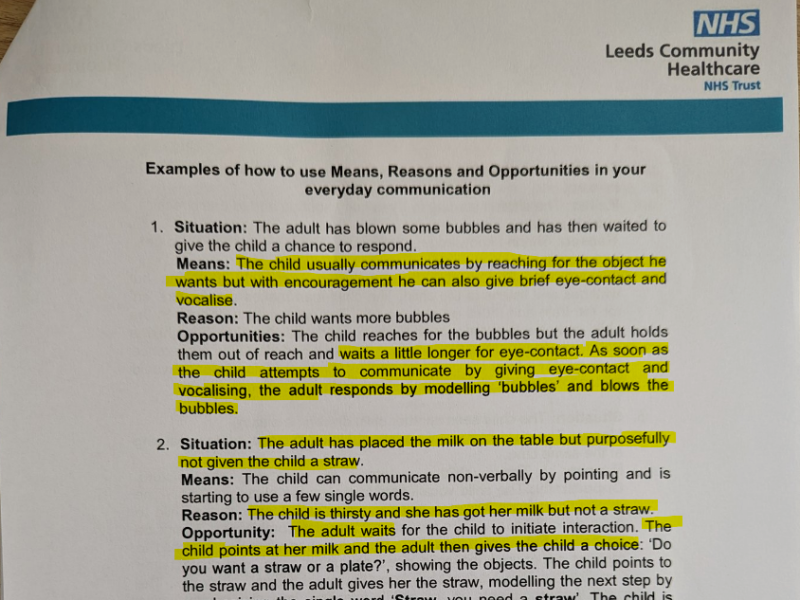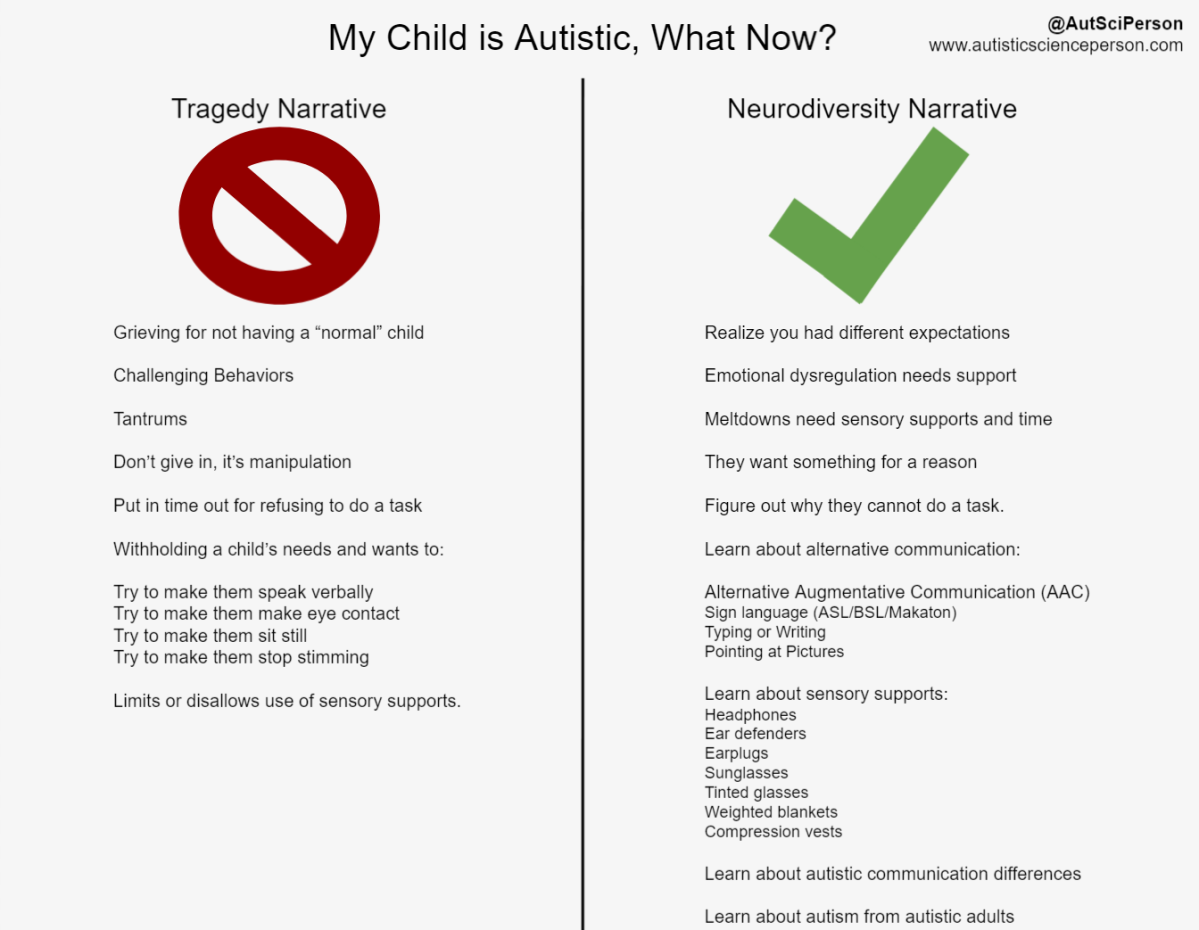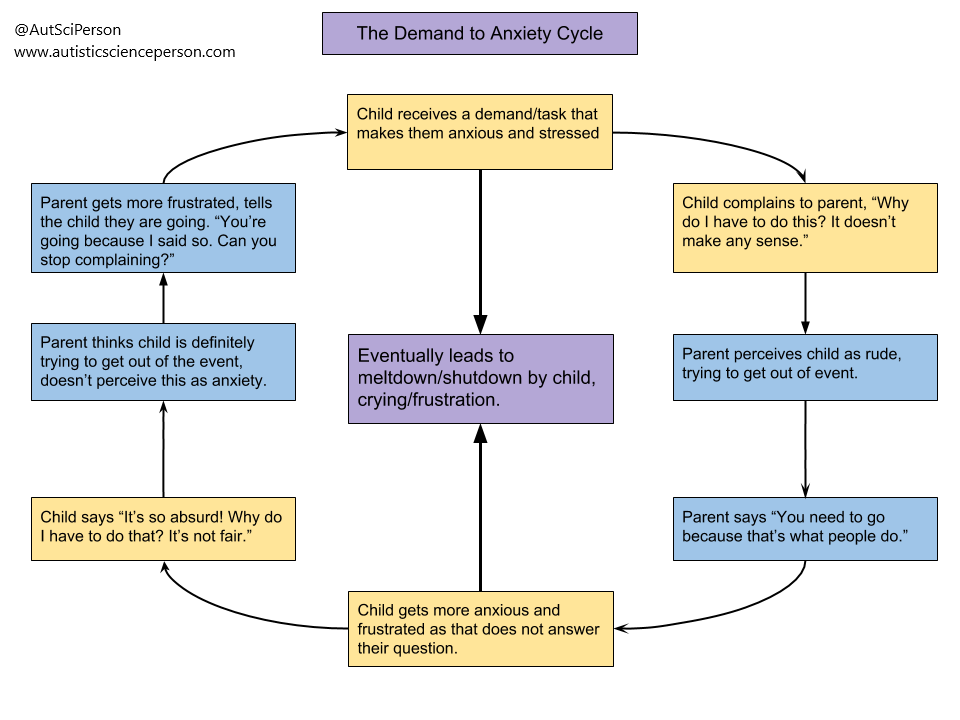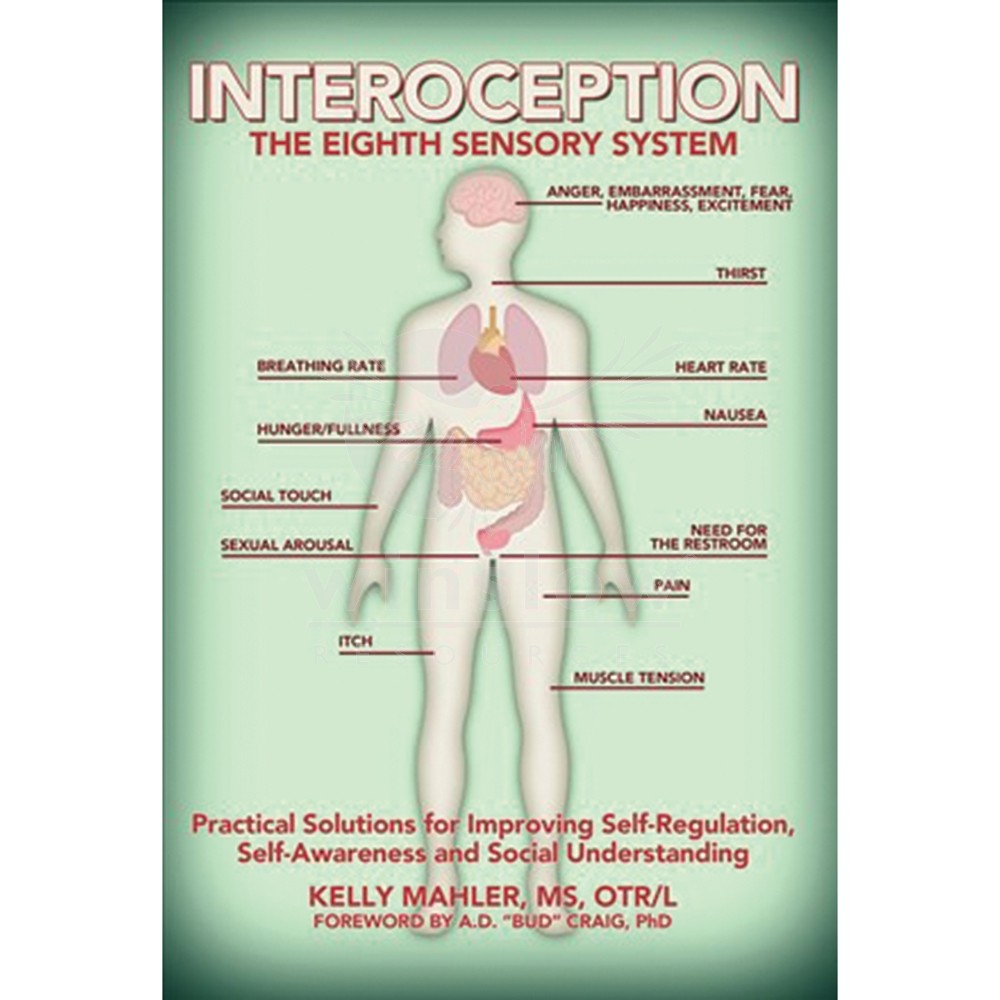Are you a parent who’s overwhelmed, trying to support your child, but aren’t sure what that means or the best way to do that? Have you been confused by the sometimes conflicting information around autism?
How I Can Help
I can help you reframe the narrative around autism from one of deficits to one of understanding, asking why, acceptance, and collaborative problem solving. I can help you see potential red flags around proper support, help suggest out-of-the-box solutions, and provide ways of thinking that can help you in the future.
What if I’m so new to autism and so overwhelmed that I don’t know where to start?
Then you’re in the right place! I can provide you with foundational knowledge on autism and give you a baseline for what you need to support your autistic loved ones, clients, colleagues, or students. There are a lot of resources out there that make autism feel scary and tragic, when autistic people are some of the most awesome people I’ve ever met! We have different needs but I can provide frameworks for asking why, being a sensory detective, and understanding other facets of the autistic experience.
Our neurodivergent five-year-old begins kindergarten this fall, and we as his parents are feeling all of the emotions: anxiety, uncertainty, fear… but also hope that he genuinely feels like he can be himself and like he belongs there. We decided that we needed help with how to talk to him about his neurodivergence in support of his being able to thrive despite a rapidly changing world around him. Ira did just that: they provided informed, thoughtful, and wise responses to our questions; an extensive set of resources from actually autistic people, and, maybe most importantly, some confidence at a time when the last thing our son needs is more uncertainty. We highly recommend Ira’s coaching for anyone who feels they can relate to our experiences.
Client Testimonial
What if I’ve already talked to professionals and they haven’t been able to help me?
I don’t give out guarantees, but I will say that if you have never talked to an autistic adult before, you probably haven’t been given the perspective and framework around autism yet that I can offer. Most non-autistic autism professionals are unfortunately trained by other non-autistic professionals, meaning they may not have the same experience and understanding of being autistic as someone who’s autistic themselves.
What if I only need one session?
That’s totally fine! I am here to help you figure out what you need, not to market and sell you services that you’re not up for. I do this because I want to help parents of autistic kids, autistic people, and professionals to best support autistic people in their lives (or themselves). Unfortunately, that also means charging for services because I’m a human who has valuable insight. I am happy to meet for a one-time session to provide suggestions for whatever topic is needed, including navigating support and potential red flags, sensory sensitivities, practical support and communication tools to reduce meltdowns, learning how to ask why and investigate, and more.
What if I’m just not good enough?
All parents have a hard job. Unfortunately, autism is a topic that is often used as a political football in our society, and autistic voices aren’t often centered in the conversation. It is really difficult for anyone to navigate society and try to get the proper supports needed for their kid, and when society doesn’t automatically accommodate your kid, when people make assumptions or judgments about your kid and you as a parent, it’s even harder. You are worthy of getting the support you need to help your kid (and the support you need for yourself!). You deserve that. Every parent of an autistic kid does, and every autistic person themselves does too.
Still not sure if this is right for you? You can schedule a free 10-minute intake appointment to see if this is the right fit for you.
Here is both a free resource for you and an example of the kind of philosophy I use. For me, the basis of problem-solving is to ask why, understand someone’s experience, and find the easiest way for them to communicate their experiences.
I am happy to provide more information by email or to help you determine if a consultation with me is the right fit for you. Feel free to reach out if you have any questions.
To Subscribe:
Latest Posts
Suggested Posts –
General Autism Information
- The term “Aspergers” is the same as being autistic. “Autistic” should be used in place of “Aspergers.”
- Functioning labels are not helpful, relatively vague, and should not be used for autistic people.
- “Severe autism” is not severe, it is a person being autistic who has other co-occurring conditions, such as intellectual disability, epilepsy, apraxia, dyspraxia, speech disabilities, etc.
- Autistic people need alternative ways to communicate besides speaking (Yes, even “highly verbal” autistic people often have difficulty expressing emotions to others through speaking and explaining everything they want to say through speaking.)
- Meltdowns are not a child “behaving badly” – a child having a meltdown needs to be supported through sensory supports and with compassion. It is not a “choice.”
- Sensory sensitivities cannot be “desensitized” – otherwise we wouldn’t have them in the first place, because we’d already be desensitized by just existing and experiencing outside stimuli. Support sensory sensitivities through sensory supports, such as headphones/earplugs/sunglasses/tinted glasses/weighted blanket.
- A lot of parents do not know they are autistic until their child is diagnosed as autistic and relate to their child’s experiences.
- Most autistic people prefer identity-first language (i.e. “autistic person,” not “person with autism” and not “person has autism”) because autism is how our brains are structured and how they work. Just like you wouldn’t say “person with gayness,” most autistic people do not like the term “person with autism” because autism is not separate from us.
- Autistic adults exist and are not going to tell you they’re autistic immediately. There is no specific “look” for being autistic. There is still a large stigma to disclosing being autistic and it can affect a person’s employment, healthcare, and many other aspects of their life.
- It is important that autistic people know they are autistic. It is better to know your brain works differently than to think that you are “weird” or “bad.” It’s important to our self-esteem for use to know we are autistic as early as possible.
- It is important for autistic people to have autistic role models to look up to, and to interact with other autistic people. Otherwise, being different and feeling isolated can lower our self-esteem and confidence in ourselves as people.











This is a great resources page for parents! 🙂 will definitely be flagging this to others
~ artiecarden.com
LikeLike